Jun 07, 2025
Author:Lisa Martinez
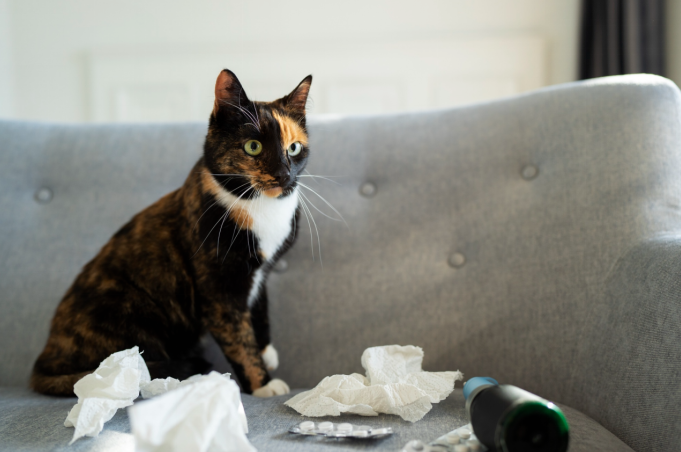
Cats make many sounds, but a cough always raises concern. Cat coughing with tongue out looks violent. The body tightens, the mouth opens, and air rushes out with force. Sometimes the tongue sticks out as the cat tries to clear the airway. This scene often scares owners, yet the event gives useful clues. A cough is not a disease. It is a sign that something irritates the breathing system. To help your pet, you must learn what triggers it, how to read each hint, and when to act fast.
Owners often mistake a cough for a hairball event. The two actions share loud sounds, but they come from different places. A hairball gag starts in the stomach and moves upward. The cat crouches low, extends the neck, and retches. Mucus and fur then appear. A cough, in contrast, starts in the lower airways or lungs. The push is sharper. No wad of hair follows, and you may hear a whistle when the cat breathes in again. Knowing this basic split helps you judge risk. If no fur shows after repeat attacks, think cat coughing with tongue out rather than hairball.
A cat breathes mainly through the nose. When a strong irritant strikes, the animal opens its mouth to pull in more air. The tongue slides forward as a simple reflex. The pink muscle acts like a valve that widens the inlet. Tongue exposure also dries saliva and cools air that rushes toward inflamed tubes, which may ease pain for a short time. However, if the tongue hangs out for more than a minute after each fit, seek care. Long tongue exposure signals that oxygen intake drops and danger climbs.
The list below shows main triggers. Each section ends with practical notes for owners.
Asthma ranks high among indoor triggers of cat coughing with tongue out. The lower airways swell and narrow. Dust, smoke, or scent sprays often set off attacks. You may hear a faint wheeze during calm times. A vet can confirm asthma with X-rays and sometimes a brief drug trial. Steroid drugs and bronchodilators ease swelling and let air flow.
Viruses and bacteria invade the upper or lower tract. Sneezing joins the cough when the nose suffers too. A fever and runny eyes often appear. Antibiotics help for bacteria; rest and fluids help for most viral germs. Vaccines cut risk of common viral strains.
Mosquitoes carry larvae that lodge in lung arteries. In cats the worms do not grow large, but their presence causes strong cough fits. Blood tests give the main clue. Treatment aims to manage reaction and stop more bites with preventives.
A grass blade or small toy part can slip past the throat. The cat paws at the mouth and coughs nonstop. This is an emergency. A vet will sedate the cat and remove the item with forceps or a scope.
Certain roundworms migrate to the lungs. Eggs enter when a cat eats rodents. Regular deworming blocks this route.
Masses in the chest press on airways. Cough fits then occur despite rest. Imaging and biopsy guide care, which may involve surgery, drugs, or both.
Cigarette smoke, fireplace soot, or scented candles often spark mild yet chronic coughs. Remove the source and open windows during cool, pollen-free hours.
Heart failure or injury can fill the pleural space with fluid. The tongue may stay out because lungs cannot expand. A vet must drain the liquid right away.
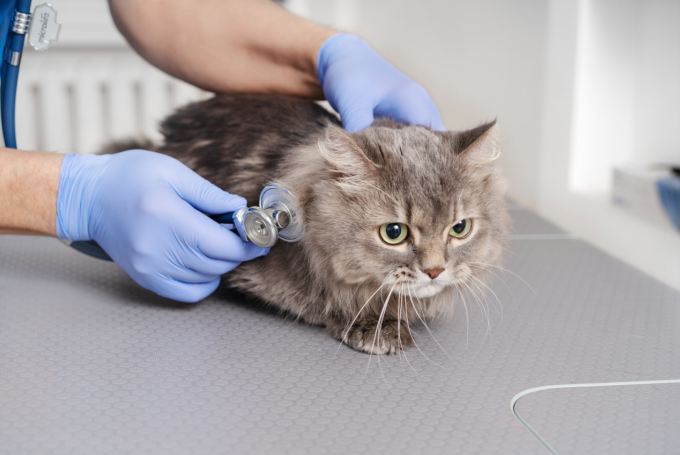
Do not wait for home cures when cat coughing with tongue out lasts more than a day or grows worse in hours. The vet will:
1. Listen to the chest with a stethoscope.
2. Order chest X-rays to view lungs and heart.
3. Run blood tests for infection or heartworm.
4. Use a scope to inspect the throat if a foreign body seems likely.
5. Test mucus samples when parasites or bacteria are on the list.
Quick visits save time and lower cost. Never delay a clinic trip when breathing looks hard or the gums turn blue.
The plan depends on the cause:
● Asthma: Inhaled steroid puffs reduce swelling without heavy side effects. Some cats accept a face mask chamber.
● Infection: Antibiotics fight bacteria. Nebulizer steam with saline keeps airways moist.
● Heartworm: No safe drug kills adult worms in cats. Supportive care and prevention stay key.
● Foreign body: Removal ends the cough at once.
● Parasites: A broad-spectrum dewormer clears worms fast.
● Cancer: Surgery, chemo, or radiation lengthen life when possible.
● Fluid: The vet drains the chest and treats the root problem such as heart disease.
Home care supports clinic work. Use a humidifier in dry months. Offer warm chicken broth on top of regular food to tempt eating. Keep the litter box clean so ammonia fumes do not irritate airways.
A strong routine keeps airways clear and lowers risk of cat coughing with tongue out:
1. Control indoor air. Avoid smoke and perfumed sprays. Use unscented litter.
2. Stay up to date on vaccines. Shots protect against viral colds that can sink into the lungs.
3. Keep weight in check. Extra fat presses on the chest. Lean cats breathe with ease. See our guide on extra weight for simple tips.
4. Use parasite control. Monthly meds stop heartworm and lungworm.
5. Schedule yearly exams. A yearly health plan finds trouble early.
6. Provide fresh water. A clean water fountain encourages drinking and keeps mucus thin.
7. Feed balanced meals. An automatic feeder gives steady portions and prevents night raids that may disturb rest.
When the tongue hangs out, many owners fear choking. In most cases, the cat simply widens the airway. Yet this sign does warn you to watch for real distress. See how long the tongue stays out, note gum color, and listen for gulping sounds. If gums turn pale or blue, rush to a vet. Do not try to pry the mouth open, and do not pour water down the throat.
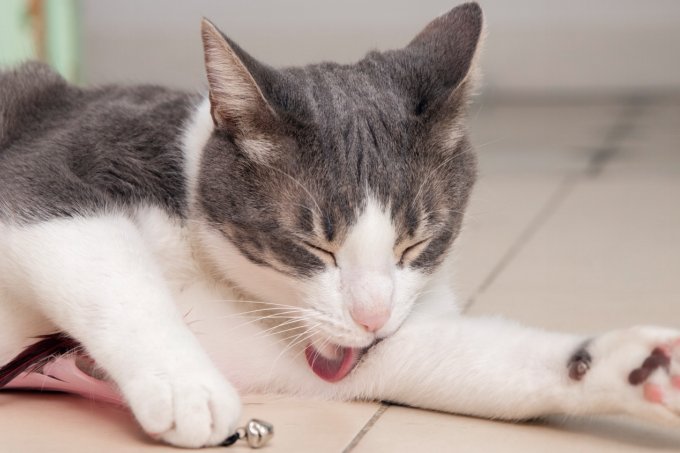
● Air filter: A high-grade filter traps dust.
● Regular cleaning: Vacuum rugs twice a week. Excess hair on clothes hints at heavy shedding in the room, so groom often.
● Safe heat: Use space heaters with guards. Smoke from fireplaces or candles can spark cat coughing.
● Litter choice: Choose low-dust litter. Some clay brands release fine powder that lingers in the air.
● Stress control: Loud noise and sudden moves can trigger asthma attacks. Offer hide spots and keep a calm routine.
A cough may tie to other signs. Watch stools, urine, and thirst. House soiling or sudden large drinks may suggest deeper disease such as kidney trouble. Read more on kidney protection if you see extra water intake. Consult your vet if signs group together.
Travel plans also matter. Car rides may expose cats to stress that lowers lung defense. Prepare your pet with gradual crate work. Spay and neuter also shape health. Early sterilization reduces hormone swings that can weaken immunity over time.
Balanced food keeps the immune system ready. Overfeeding slows activity and raises fat mass. Learn about portion control. Combine the feeder with hydration hacks to keep mucus thin. Offer wet food twice a day. Place at least two water stations away from litter boxes.
Write down every cough episode. Note date, time, and trigger such as play or rest. Film a short clip on your phone. Vets use videos to judge severity and plan tests. Check breathing rate while the cat sleeps: count chest rises for 30 seconds and double the number. A normal rate rests below 30 breaths per minute. Higher rates mean lungs work harder.
Create an emergency kit: vet phone number, carrier, towel, and a small oxygen mask if your clinic rents them. Keep the carrier open and near the cat’s favorite spot so loading causes less stress.
Call your vet at once if you see any of these:
● Cat coughing with tongue out turns continuous for more than an hour.
● Tongue or gums look blue or gray.
● Belly moves with each breath.
● Noise or crackles appear when the cat inhales.
● The cat collapses or cannot stand.
During transit, keep the cat calm. Dim lights, and speak in a steady tone. Do not give cough syrup made for humans.
Many cats live full lives after early care. Asthma cats often use inhalers for years with little trouble. Cats that beat infections gain strong lungs again. Heartworm preventives keep future bites from causing harm. Cancer outlook varies, yet newer drugs improve comfort. Your role stays vital: track signs, keep the air clean, and stick to vet schedules.
A cough in a cat is not normal, yet panic helps no one. Observe signs, note tongue behavior, and move fast when risk rises. Cat coughing with tongue out warns you to act; heed the signal and you protect your pet. Clean air, balanced meals, and routine checkups reduce attacks. When cough fits strike, record the event, call the vet, and follow the plan. Your steady care today shapes safe breathing tomorrow. With clear steps and close watch, you give your cat the best chance to breathe free again, tongue tucked inside and lungs working with ease.
Label:
Popular Post

What to Feed a Sick Dog With No Appetite? [2025 Guide]
May 16, 2023
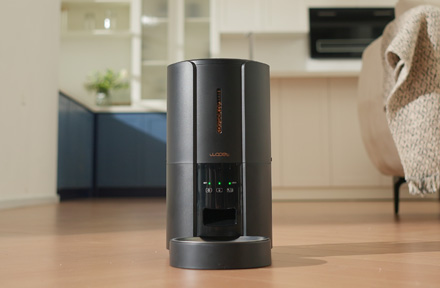
Troubleshooting Common Issues with Automatic Pet Feeders: Tips & Tricks for Pet Owners
Oct 26, 2023

Why Does My Cat Cough After Drinking Water? 8 Potential Reasons
Mar 13, 2023
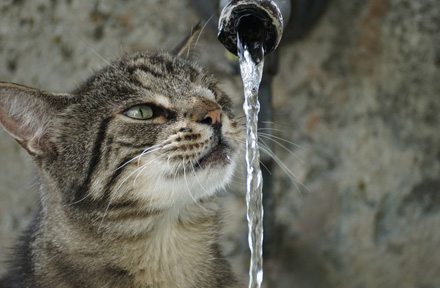
Why is My Cat Throwing up Water? Top 5 Causes Here
Feb 08, 2023
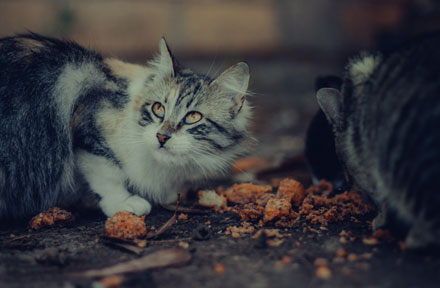
My Cat Only Eats A Little at A Time - What to Do?
Feb 27, 2023
$99.99
$129.99
Copyright © 2025 WOPET. All Rights Reserved.